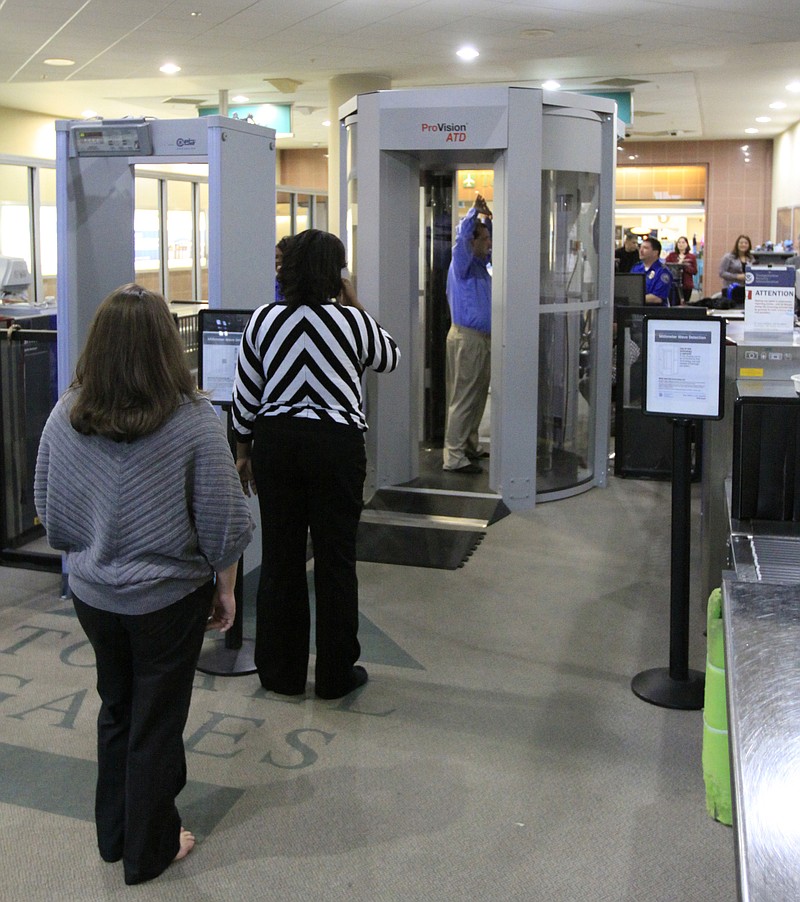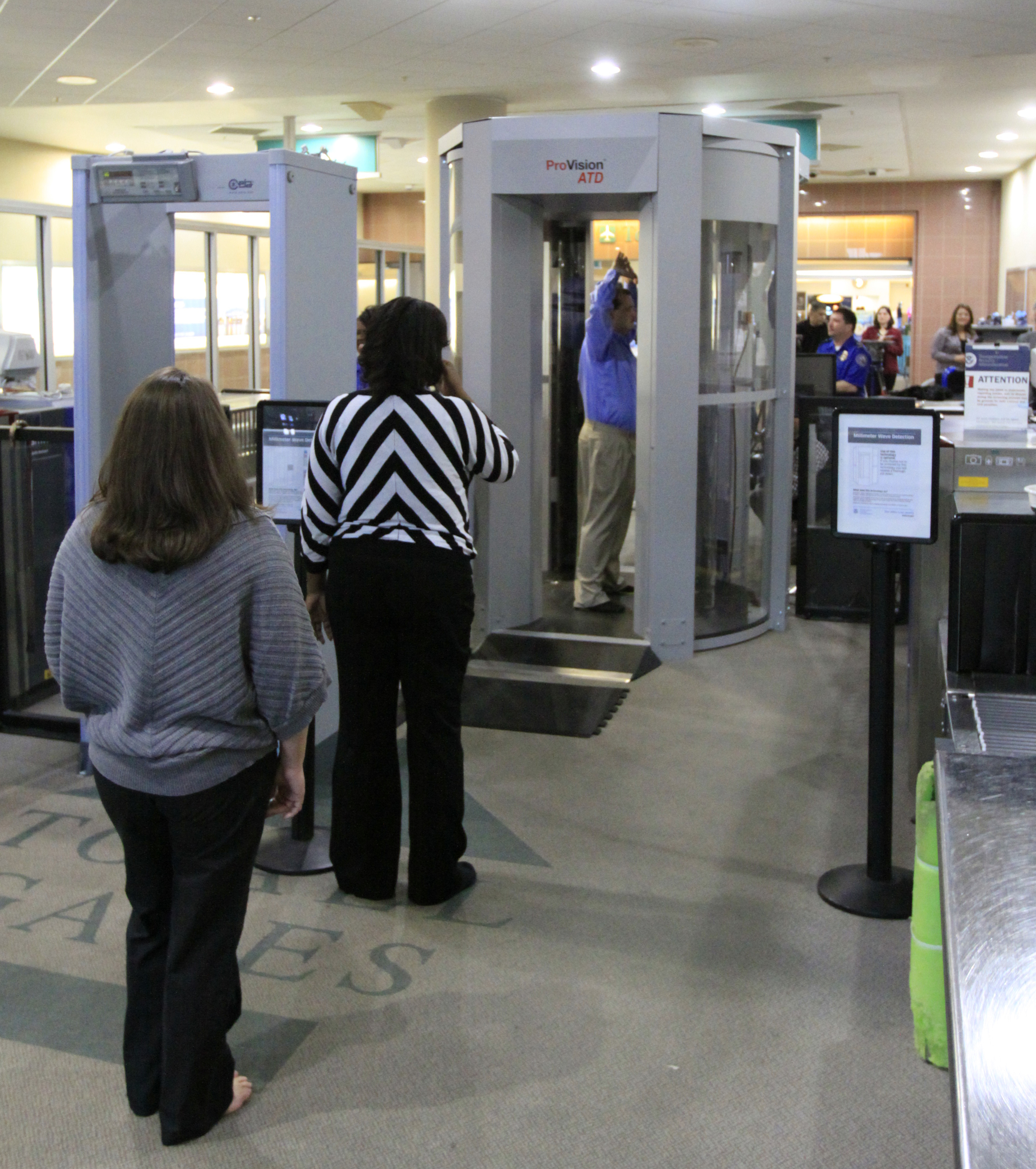U.S. Airways employee Randy Tilly said he understands the debate over use of a new full-body scanner at Chattanooga Metropolitan Airport.
"I've got a vested interest in security," he said Thursday while waiting for a plane at the airport terminal. But he added there are privacy worries among some travelers, as well as the cost of installing the machines at airports countrywide.
Transportation Security Administration officials said the scanner now operational at the airport's checkpoint improves security.
Stephen Wood, TSA's federal security director at the airport, said the machine also holds the latest technology that enhances privacy by eliminating passenger-specific images, a worry related to the first scanners installed in airports a few years ago.
"We've addressed a lot of concerns," Wood said.
A separate TSA officer no longer is needed to view a traveler's image in a remote room, according to TSA. The image of the passenger has been replaced by a generic outline of a person, officials said.
Also, TSA officials said the 300 mm electromagnetic wave imaging technology used in the new machine is safe for all passengers, including pregnant women and children.
Jon Allen, a TSA spokesman, said the energy emitted by the technology is 1,000 times less than international limits.
He said travelers are picked at random to enter the machine, though he wouldn't say what percent of air passengers are chosen. Allen said the scanning takes about 12 to 15 seconds per person.
"We haven't seen a negative impact on wait times," he said. Allen said people can refuse the scanner, but they are subject to a traditional pat-down.
The Chattanooga airport now has two security lanes at the checkpoint. One uses the typical metal scanning equipment while the other the advance imaging technology.
The $150,000 cost of the machine is paid by the federal government.
Air traveler Polly Sisson, of Chattanooga, said safety and security are the most important factors to her.
"As far as I'm concerned, I'd rather be safe. It doesn't bother me," she said.
Everette Lumsden, of Lexington, N.C., who also was waiting for a flight, said he's sure some people have objections to scanners.
But while he's sitting on the plane, he said he'd rather know that everything was done to keep it safer.
Airport spokeswoman Christina Siebold said having the latest generation of the scanner is a plus.
She added that the second lane at the checkpoint helps customer service and speed travelers through security.

